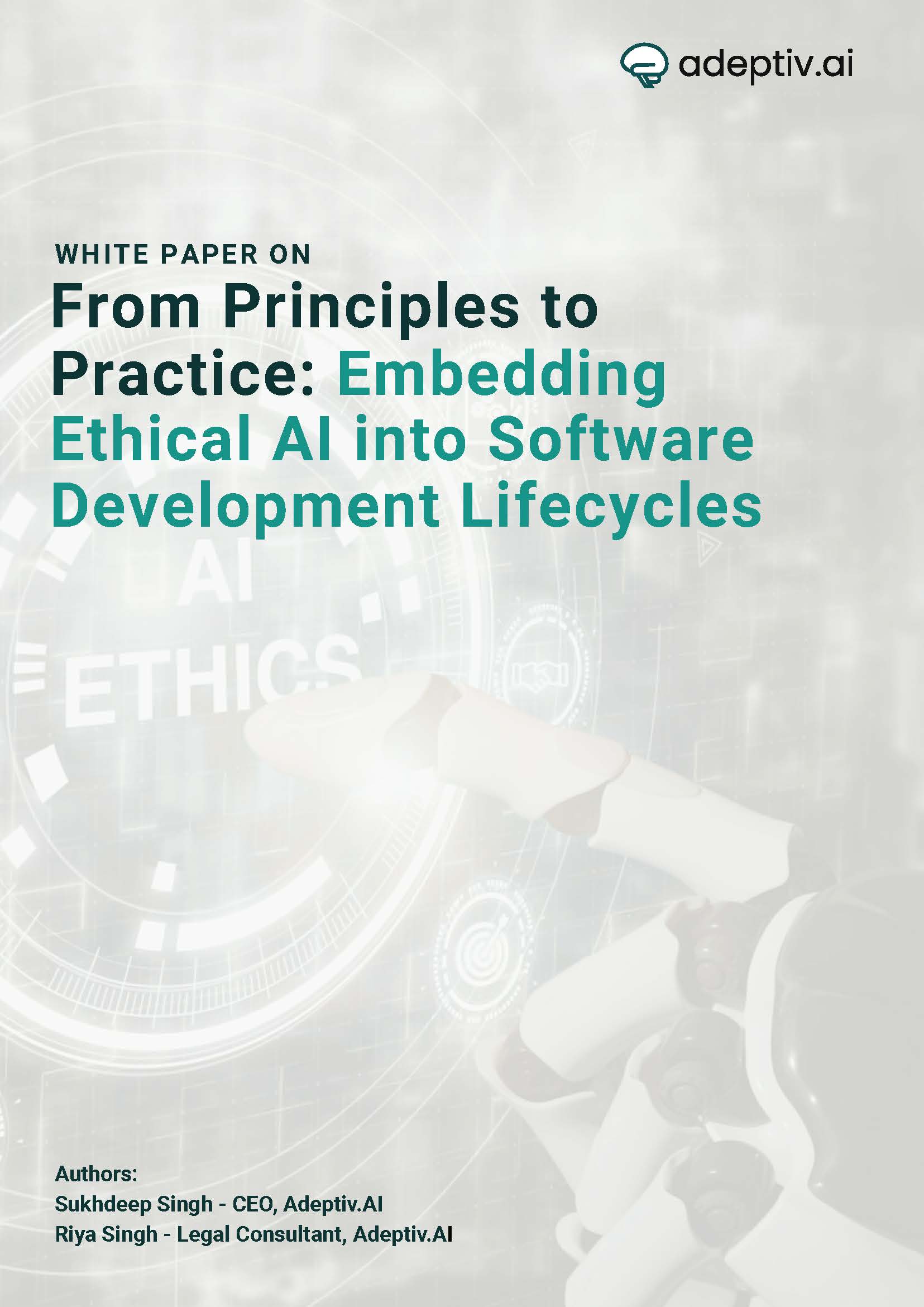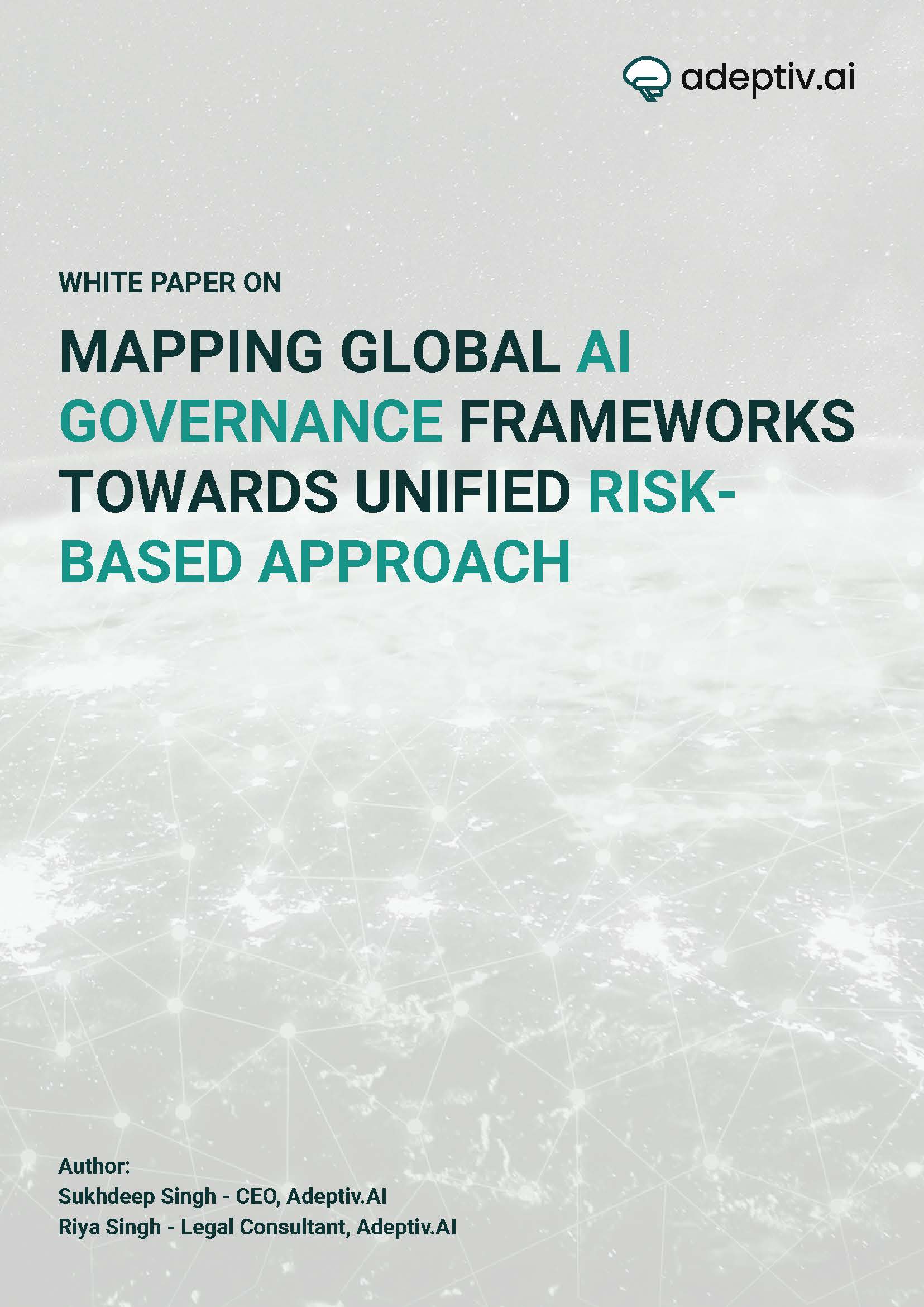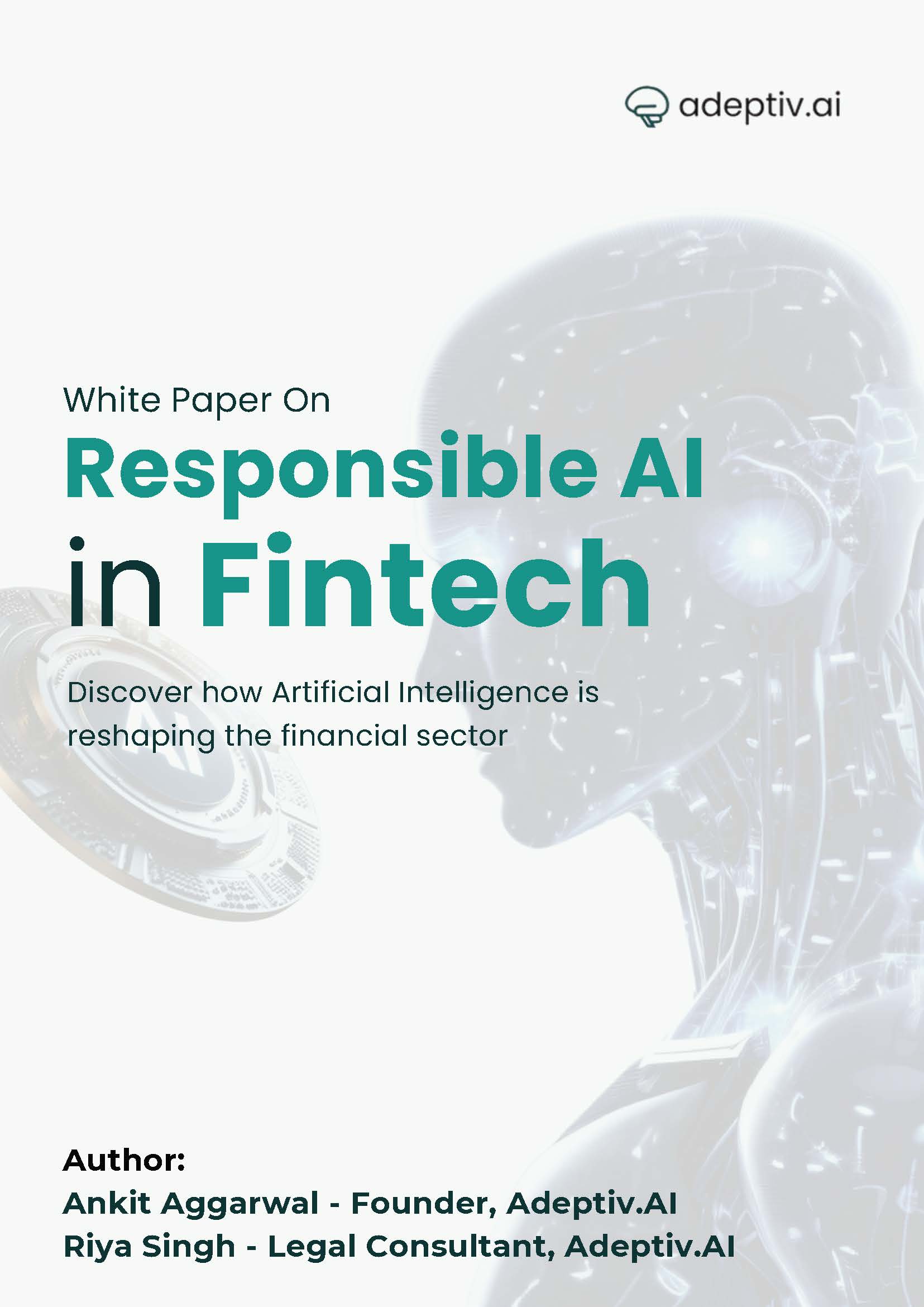At a Glance
- AI in healthcare is transforming diagnostics, treatment, and hospital operations worldwide.
- However, ethical and governance challenges around bias, consent, and accountability persist.
- Real-world cases like IBM Watson Health and Google DeepMind highlight both the promise and pitfalls.
- Strong AI Governance Frameworks ensure fairness, transparency, and compliance.
- This article explores how healthcare can responsibly scale AI while protecting patients and trust.
Artificial intelligence has redefined healthcare. From predicting disease outbreaks to automating diagnostics and improving hospital efficiency, AI promises unprecedented innovation. Yet, with its expanding influence come critical ethical and governance questions: Who is accountable when AI errs? How do we balance innovation with patient rights and regulatory oversight?
This article explores how healthcare leaders can balance technological progress with ethical responsibility through AI Governance — ensuring that every AI decision is transparent, fair, and accountable.
The Transformative Potential of AI in Healthcare
AI is already reshaping how care is delivered:
- Diagnostics: AI in healthcare systems detects early-stage cancers or retinal diseases faster than human experts.
- Example: Google’s DeepMind partnered with Moorfields Eye Hospital to identify eye conditions with 94% accuracy — but also raised questions about patient data consent.
- Personalized Treatment: Machine learning models analyze genomic data to design precision therapies, as seen with IBM Watson Health’s oncology platform.
- Predictive Analytics: Hospitals use AI to anticipate patient deterioration or readmission risk, reducing mortality and costs.
- Operational Efficiency: AI in healthcare automates administrative workflows, optimizes staffing, and accelerates documentation — freeing clinicians for patient care.
However, as AI’s role deepens, it begins making or influencing life-altering decisions. The stakes rise — and so must our standards for Responsible AI.
Ethical Challenges in AI-Driven Healthcare
1. Data Privacy & Informed Consent
AI in healthcare thrives on massive datasets, yet patients often lack clarity about how their data is used. The 2017 DeepMind–NHS case revealed how millions of patient records were processed without explicit consent — prompting regulatory scrutiny.
Legal frameworks like HIPAA (U.S.), GDPR (EU), and India’s DPDP Act (2023) emphasize data transparency and consent. Ethical governance demands that healthcare organizations:
- Disclose how AI models use patient data.
- Seek informed consent before training or deploying systems.
- Protect sensitive health data with encryption and anonymization.
2. Bias and Fairness
AI in healthcare systems is only as unbiased as their data. Historical biases — gender, ethnicity, socioeconomic status — can distort outcomes.
A 2019 study in Science found that a U.S. healthcare algorithm underestimated illness severity in Black patients because cost data was used as a proxy for health need.
To address this:
- Use diverse, representative datasets.
- Run bias audits regularly.
- Embed ethical checkpoints during model training and deployment.
3. Transparency and Explainability
When algorithms act as “black boxes,” clinicians and patients lose trust. A system that predicts cardiac arrest risk may save lives, but if no one understands why it flagged a patient, it undermines accountability.
Regulations like GDPR Article 22 and CCPA grant users the right to explanation. Explainable AI (XAI) methods — such as SHAP and LIME — help interpret AI outputs, bridging the gap between performance and understanding.
4. Autonomy and Human Oversight
AI should augment, not replace, clinical judgment. The U.S. FDA and UK’s MHRA require that high-risk medical AI systems maintain human oversight.
Responsible AI ensures:
- Clinicians retain final decision-making power.
- Human review gates exist before automated outcomes are executed.
- AI decisions remain contestable and reversible.
5. Accountability and Liability
When AI in healthcare systems fail — who is responsible?
The IBM Watson for Oncology controversy highlighted this dilemma. Watson provided unsafe cancer treatment recommendations, leading to its withdrawal from several hospitals. Yet, accountability remained murky between the vendor, hospitals, and clinicians.
To mitigate this:
- Establish AI liability frameworks within contracts.
- Maintain model audit trails and decision logs.
- Implement AI Governance Frameworks mapped to standards like ISO 42001 and NIST AI RMF.
Building a Resilient AI Governance Framework
Healthcare institutions must shift from reactive compliance to proactive governance. A strong AI Governance Framework integrates ethics, accountability, and risk control throughout the AI lifecycle.
1. AI Inventory & Risk Classification
Map all AI assets, including “shadow AI.” Classify them by impact (low–high risk). This forms your governance foundation.
2. Ethical Principles & Policy Layer
Define organizational AI ethics pillars: fairness, transparency, accountability, and security. Embed these into policies.
3. Technical Controls & Safeguards
Incorporate bias testing, explainability, data lineage, and human oversight directly into development pipelines.
4. Continuous Monitoring & Audit Trails
Enable real-time monitoring, versioning, and drift detection. Store explainability records for audits and legal defence.
5. Governance Committees
Form multi-disciplinary ethics boards or AI steering committees responsible for policy enforcement and incident review.
6. Regulatory Alignment
Map your practices to ISO 42001, EU AI Act, and WHO’s AI Ethics Principles. This ensures audit readiness and regulatory resilience.
Case Studies: Lessons in Responsible AI
1. Google DeepMind & NHS — Data Without Consent
While DeepMind’s AI achieved remarkable diagnostic accuracy, lack of transparency in patient data use triggered public backlash.
Lesson: Transparency and consent are not optional — they are prerequisites for trust.
2. IBM Watson Health — Promise vs. Practice
Once heralded as the future of oncology, Watson’s AI struggled with unreliable data and poor explainability.
Lesson: Accuracy without accountability erodes credibility.
3. PathAI — Responsible Deployment in Diagnostics
In contrast, PathAI collaborates closely with regulators and hospitals, maintaining auditability and human review.
Lesson: Governance and ethics can drive sustainable innovation.
Legal and Regulatory Landscape
- EU AI Act (2025): Categorizes healthcare AI as “high-risk,” demanding transparency, data quality, and human oversight.
- U.S. FDA SaMD Framework: Regulates AI/ML software as medical devices, emphasizing safety and post-deployment monitoring.
- WHO’s 2021 AI Ethics Guidance: Advocates fairness, accountability, and inclusiveness.
- OECD AI Principles (2019): Encourage trustworthy AI aligned with human rights.
Together, these frameworks create the scaffolding for AI Governance & Ethics in healthcare.
Future Path: From Compliance to Compassionate Intelligence
As AI advances, ethical maturity must evolve with it. True Responsible AI in healthcare doesn’t just avoid harm — it reflects empathy, equity, and integrity.
Organizations that embed governance early will not only meet regulatory expectations but also earn long-term trust — from patients, providers, and the public.
Conclusion
AI can be medicine’s most powerful ally — but only if it remains accountable to the humans it serves.
By embedding Responsible AI principles, adopting AI Governance Frameworks, and maintaining continuous oversight, healthcare systems can ensure that innovation heals rather than harms.
The goal isn’t to slow progress — it’s to guide it responsibly.
FAQs
1. What is AI Governance in healthcare?
AI Governance ensures that AI in healthcare follow ethical, transparent, and compliant practices — balancing innovation with accountability.
2. How does Responsible AI improve patient safety?
Responsible AI enforces fairness, data privacy, and oversight, preventing harm caused by biased or opaque algorithms.
3. Which global standards apply to AI in healthcare?
Key standards include ISO 42001, EU AI Act, NIST AI RMF, and WHO AI Ethics Framework.
4. What causes bias in healthcare AI systems?
Bias arises from unbalanced datasets, flawed labeling, or systemic inequities reflected in historical medical data.
5. How can hospitals build AI governance programs?
By mapping AI assets, establishing ethics boards, monitoring continuously, and aligning with global compliance frameworks.



